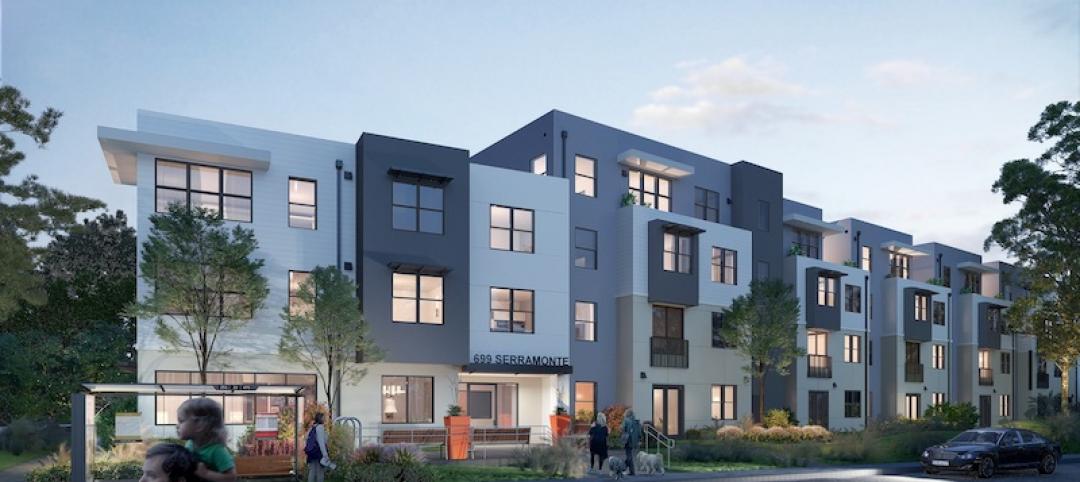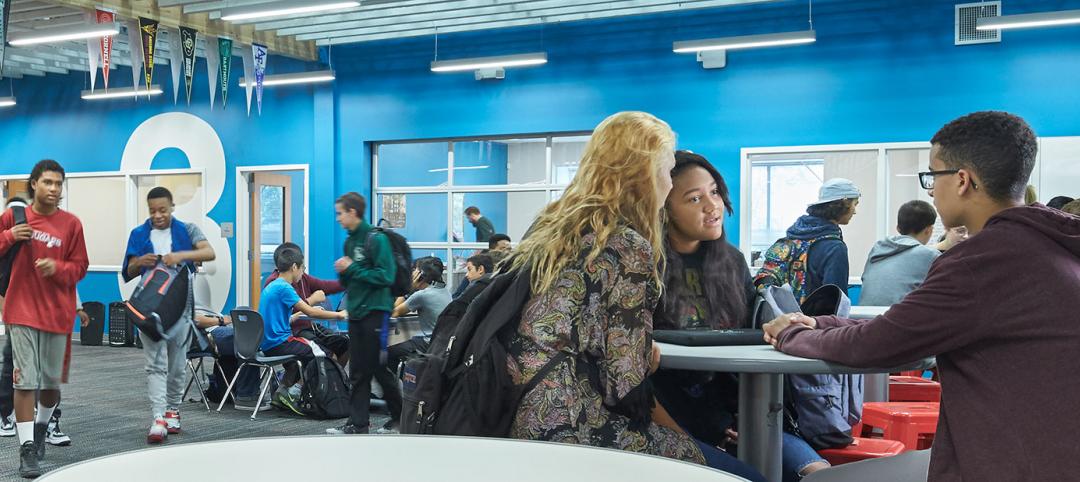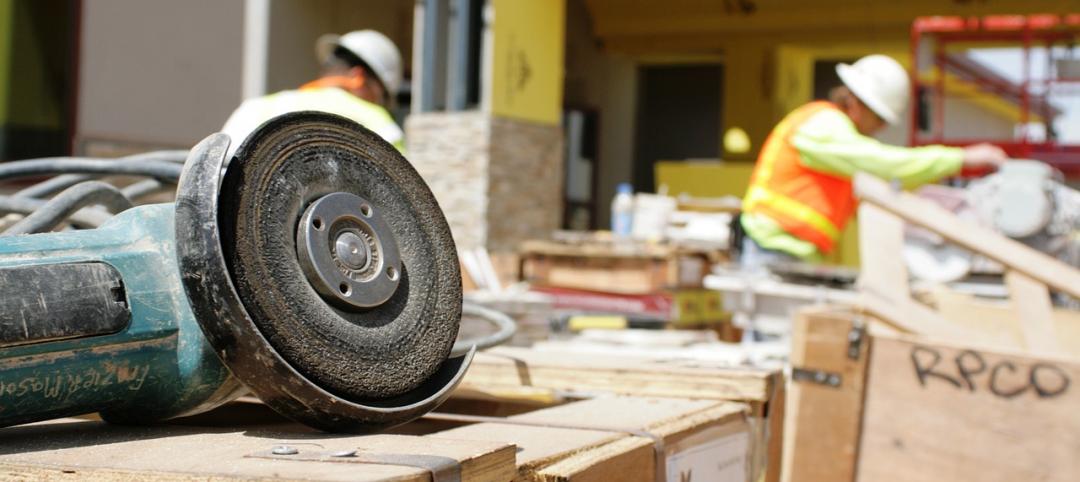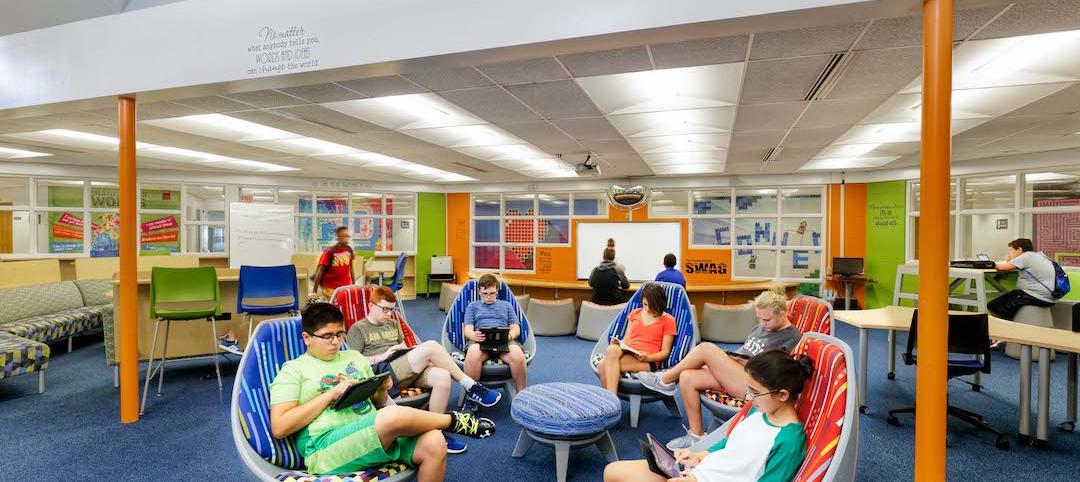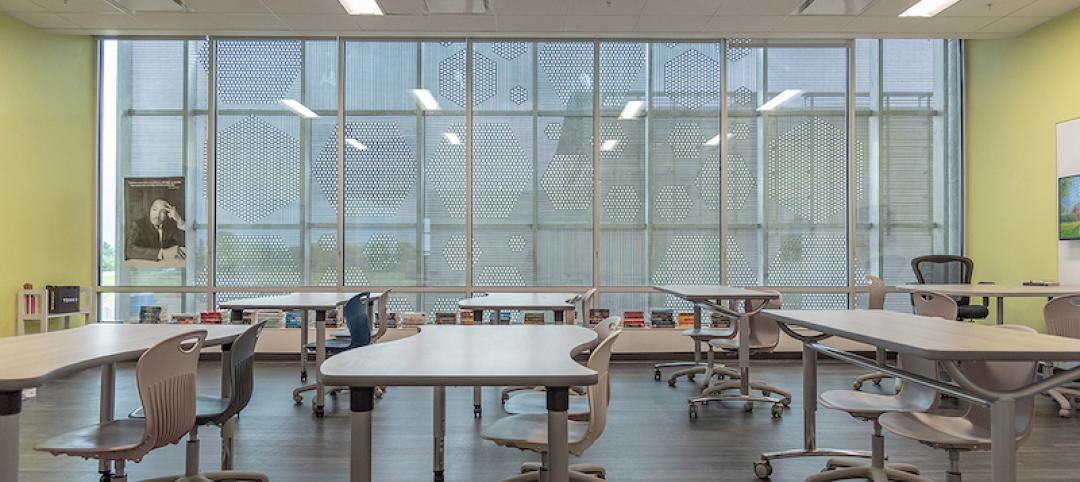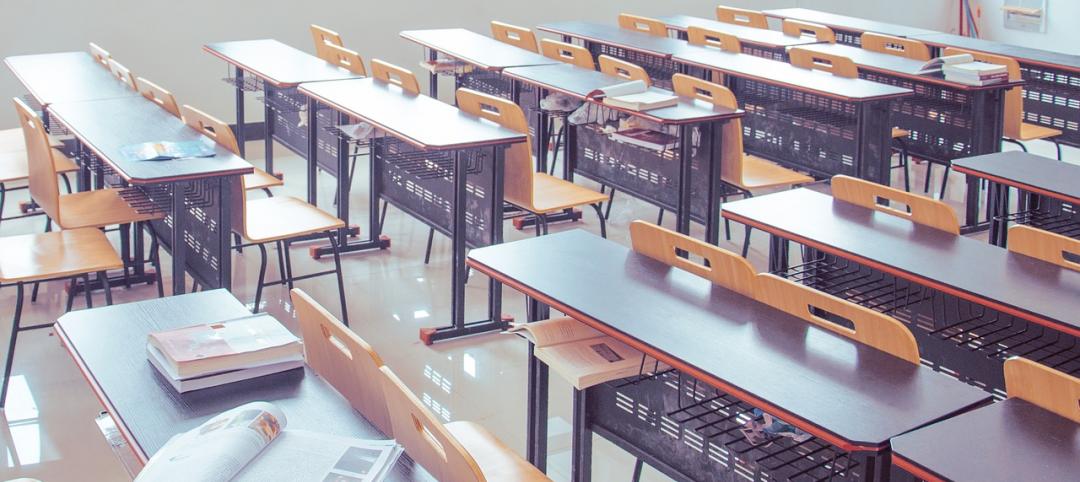Can the use of wood in school construction create healthier, safer, more productive learning environments?
In Japan, there's an ongoing effort by government officials to construct school buildings with wood materials and finishes—everything from floors and ceilings to furniture and structural elements—in the belief that wood environments have a positive impact on students.
Officials with Japan's Ministry of Education believe wood has numerous endemic qualities that promote the learning process. Visually, they say, wood evokes feelings of warmth, softness, and "positive sensations" among students and teachers. Wood's natural insulating properties help control temperature and humidity swings and sound reverberation, and its shock absorbency reduces the risk of injury. And a three-year study of 700 schools by the Japanese Wood Academic Society reports some data to indicate reduced incidence of influenza outbreaks in wooden schools compared to flu outbreaks in reinforced concrete facilities.
While the research on the benefits of wood in schools is largely anecdotal, the Ministry of Education is fully committed to promoting the social and cultural aspects of this traditional Japanese construction material. Since 1985, the ministry has subsidized school construction projects that incorporate wood with between $19,000 and $190,000, depending on the size and scale of the facility. This effort has resulted in a new breed of timber-framed schools and an even greater number of schools incorporating wood-based interior finishes, such as floors, walls, and ceilings. The ministry has committed subsidies through 2007.
At the 8,530-sm Gumma International Academy in Ota, scheduled for completion next month, exposed Southern yellow pine and Douglas fir glulam timbers form the structural post and beam elements for the roof of the K-9 school. Inside, local architect Ceolacanth and Associates specified wood flooring and ceiling panels.
However, the ministry has a long way to go in its mission to infuse Japan's school system with wood. Timber-framed schools make up just 2% of the country's 44,500 schools. Japan is one of the world's largest wood importers, but wood is generally more costly than concrete, and procuring materials can be a challenge for Building Teams, depending on the capacity of the local mills. There are also limitations to the size and scale of timber-frame structures, and they must meet strict fire and seismic safety standards.
Related Stories
Coronavirus | Mar 30, 2020
Learning from covid-19: Campuses are poised to help students be happier
Overcoming isolation isn’t just about the technological face to face, it is about finding meaningful connection and “togetherness”.
Education Facilities | Mar 3, 2020
Carisima Koenig, AIA, joins Perkins Eastman as Associate Higher Education Practice Leader
Perkins Eastman as Associate Higher Education Practice Leader
Multifamily Housing | Feb 26, 2020
School districts in California are stepping in to provide affordable housing for faculty and staff
One high school district in Daly City has broken ground on 122-apartment building.
Architects | Feb 24, 2020
Design for educational equity
Can architecture not only shape lives, but contribute to a more equitable and just society for marginalized people?
Giants 400 | Sep 4, 2019
Top 90 K-12 School Sector Construction Firms for 2019
Gilbane, Balfour Beatty, Turner, CORE Construction, and Skanska lead the rankings of the nation's largest K-12 school sector contractors and construction management firms, as reported in Building Design+Construction's 2019 Giants 300 Report.
Giants 400 | Sep 3, 2019
Top 140 K-12 School Sector Architecture Firms for 2019
DLR Group, PBK, Huckabee, Stantec, and VLK Architects top the rankings of the nation's largest K-12 school sector architecture and architecture engineering (AE) firms, as reported in Building Design+Construction's 2019 Giants 300 Report.
Giants 400 | Aug 30, 2019
2019 K-12 School Giants Report: 360-degree learning among top school design trends for 2019
K-12 school districts are emphasizing practical, hands-on experience and personalized learning.
Energy Efficiency | Aug 8, 2019
Florida’s first net-zero K-12 school opens
The building is distinguished by its rooftop solar array and its air-tight envelope.
K-12 Schools | Jul 15, 2019
Summer assignments: 2019 K-12 school construction costs
Using RSMeans data from Gordian, here are the most recent costs per square foot for K-12 school buildings in 10 cities across the U.S.
K-12 Schools | Jul 8, 2019
Collaborative for High Performance Schools releases 2019 Core Criteria Version 3.0 Update
The update adds credits to lower carbon footprints and to promote climate change resiliency.




